New Guidance Launched on Optimising ESG in the World of Offsite and MMC

A new report published by the Supply Chain Sustainability School, Akerlof and the University of Salford guides clients and supply chain organisations on how to enhance the benefits of the social value created through the use of offsite manufacture.
In the face of urgent challenges, including the need to rapidly decarbonise, combat growing poverty and inequality, and address the cost of living crisis, what and how we build is crucial. Offsite construction and the social value agenda are two responses, driven by both government and industry. This report brings these agendas together, addressing a gap in guidance for clients and the supply chain.
Contributors to the report described how proposals which involve factory pre-fabrication are sometimes disadvantaged during bids, due to clients restricting social value measurement to the municipal area of the development site. Such assessments miss the significant benefits offsite manufacturing facilities can bring to other geographical areas, for example, through provision of stable, higher quality employment.
The report illustrates the potential benefits that can be felt at both development and manufacturing sites across five themes: employment, skills, economy, social and environmental. Across these, we unearthed promising stories of offsite organisations contributing positively, along with significant scope for improved data gathering and communication to support assumptions.
Examples of good work include:
- Opening up opportunities for employment to members of local communities, students and underrepresented groups
- Measured reductions in embodied carbon
- Inclusion of local stakeholders in the design process through the use of digital tools
- Creation of training opportunities and routes to progression through direct employment
Ultimately, our findings indicate there is potential for offsite to deliver the same, if not more, value to society than traditional construction, providing early communication takes place among stakeholders to understand the possibilities and agree clear boundaries and methodologies.
Pressing forward in this space, there is a great deal of work needed to build up the robust evidence base required to set baselines for improvement and effectively communicate the benefits, which the School and collaborating organisations are keen to support.
Ian Heptonstall, Director of the Supply Chain Sustainability School, said:
The report can be downloaded from the Supply Chain Sustainability School website here.
About Supply Chain Sustainability School:
The Supply Chain Sustainability School (the “School”) is a multi-award-winning initiative which represents a common approach to addressing sustainability within supply chains. Co-funded by near 180 collaborating companies (Partners), the School is delivered by an independent third-party consultancy, Action Sustainability. Leadership is provided by a School Board comprising elected representatives of Partners, responsible for fiscal governance and strategic direction. A Code of Ethics is signed by all Partners as part of the School Constitution and Partners lead the direction of the School content and activities through leadership groups. With more than 50,000 registered users, the School provides free practical learning and support in the form of sustainability training, events and networking, e-learning modules, tailored assessment and a library of over 3,000 online resources. https://www.supplychainschool.co.uk/
About Akerlof:
Our industry has a unique opportunity to influence society for the better. Both in what we build and how we build it. Akerlof helps organisations in the built environment to deliver betters, not just goods.
Responding to contemporary challenges with creativity and clarity, we work with ambitious leaders in both public and private sectors to offer fresh and objective thinking on how to deliver economic, environmental and social value through Modern Methods of Construction (MMC).
As a verified B Corp, we care about the built environment and how it shapes society. Our people have worked at front-line and business leadership levels for the UK’s largest contractors and consultancies, bringing their experience, energy and clarity to help our clients do the right things better. https://akerlof.co.uk
For more information contact Ellie.Jenkins@akerlof.co.uk
Modern Methods of Construction (MMC) Standardisation Research project
Sign up to receive updates on the Modern Methods of Construction (MMC) Standardisation Research project, including information on the open call in January.




